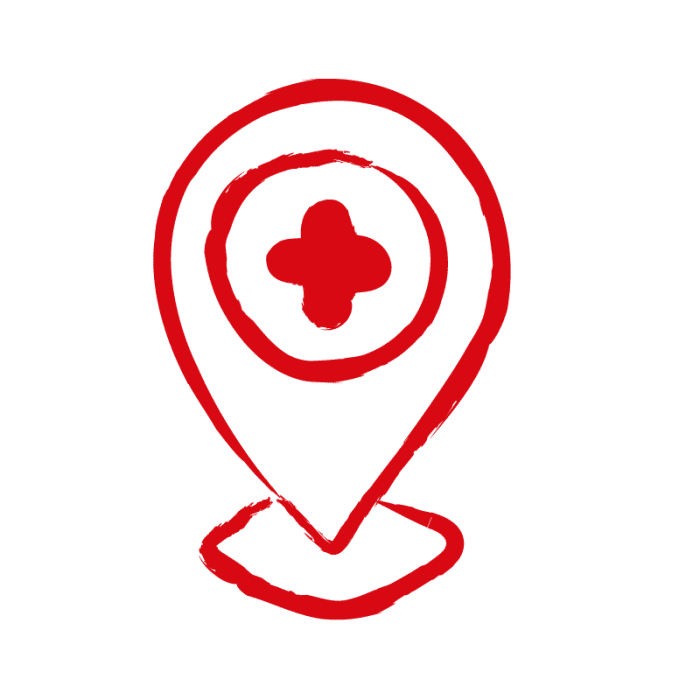
Visiting Alder Hey
This guidance aims to supervise the footfall into all Alder Hey sites in order to protect all children, visitors and staff while preserving as much as possible our family-centred care approach.
- Visitors in our public spaces, outpatients and community clinics will not be required to wear a facemask.
- All staff, patients and visitors must still wear a surgical mask or face covering in any inpatient areas (our wards) and the Emergency Department (ED). Masks will be provided at the entrances to these areas.
- On arrival to the hospital and when entering/leaving the bed space, visitors should perform hand hygiene.
- Anyone showing any signs or symptoms of communicable diseases (i.e. cough, fever, vomiting, diarrhoea) should not visit the hospital and if any essential visitor displays symptoms of a respiratory infection while being in the hospital, they should have a Covid-19 LFD/PCR test as soon as possible.
Staying as an Inpatient:
- On admission, you will be asked to complete a screening questionnaire for signs and symptoms of communicable diseases. You will also be provided with an information leaflet to with infection prevention measures aimed at reducing exposure to sick visitors.
- Visitors with signs and symptoms of communicable diseases such as cough, fever, vomiting, diarrhoea etc. may be asked to leave. If they are the only caregivers, they will remain in isolation with their child to avoid exposing other patients and visitors. Parents/careers will be asked to self-report symptoms daily to the clinical team during their hospitalization.
- On any in-patient ward, children may have 2 parent/carers visiting at a time and 2 siblings (who should also have completed a clinical screening questionnaire). However, this rule may not be appropriate to all patients, particularly those with long inpatient stays or those in an open ward. Exceptions should be discussed on an individual basis with ward managers (or delegated to shift leader) to arrange extra visitors in advance.
- Visitors will be asked to remain with patients and ensure they are not mixing with other families.
- Parents/carers may visit their child as per open visiting (24 hours a day).
Outpatients appointments:
- Two adults may accompany a child to the Alder Hey outpatient department. Visitors with signs and symptoms of communicable diseases should not accompany a child who is attending Alder Hey for an outpatient appointment.
- Due to high attendance to our Emergency Department (A&E) and limited physical space in waiting areas, only one adult should accompany a child to Alder Hey A&E while in the waiting area. However, during the A&E clinical consultation, 2 adults will be able to accompany their child.
Situations when visiting exceptions may be indicated:
- When one or both parents/carers have a physical or learning disability or mental health disorder and have an adult carer to accompany them, then each parent plus adult carer together will ‘count’ as one visitor.
- When a child’s disability or severe challenging behaviour requires more people present to manage the child safely, without which their outpatient or emergency care cannot be facilitated.
- Where families are travelling considerable distance to receive essential treatment/assessment at any Alder Hey site and where these appointments may be lengthy, then consideration will be given to planning how this can be supported.
Additional considerations for patients/visitors with signs or symptoms of communicable diseases (including Covid-19):
- When any parent/carer of a child on an in-patient ward has sign or symptoms of communicable diseases, they should not visit Alder Hey. However, in the exceptional circumstances that there would be no other suitable adult who could be with the child, the case will be discussed with the Ward Manager. If attendance is agreed, parent/carers will be met and escorted by Alder Hey ward staff and will be asked to observe the following protocols:
- Face-Hands-Space measures
- Wear a type IIFR surgical mask (rather than cloth mask). This is particularly important when staff are present in patient rooms.
- Isolate in a cubicle when possible (with private toilet facilities) with child. They may not visit any other part of the hospital.
- If a parent/carer uses a shared toilet facility, they must alert ward staff to contact environmental services for immediate cleaning of the toilet.
- Parents/carers must avoid leaving the cubicle unless this is essential and has been discussed in advance. Food and any other items will be brought to the cubicle.
- Parents/carers must notify staff immediately if they develop any additional or worsening symptoms. A carer or visitor who becomes unwell must be seen and assessed by adult services and cannot stay at Alder Hey for their own safety.
- Parents/carers of Covid-19 positive patients with negative Covid-19 tests result who wish to stay, will also be advised to isolate in the cubicle with the child to minimise the risk of asymptomatic or pre-symptomatic transmission to others.
- Parents/carers will be offered PPE and access to Covid-19 test during their quarantine period.
- Parents/carers will be allowed to leave the cubicle for brief comfort breaks, following the protocol outlined above.
Visiting our Intensive Care Unit (ICU)
Prior to visiting
Before visiting ICU, visitors should:
- Contact ICU to discuss appropriate arrangements.
- Be aware of the practical advice about social distancing, wearing personal protective equipment (PPE) and handwashing on the unit.
Number of visitors at besides
- Generally, both parents/carers will be allowed to visit the patient’s bedside together. In certain circumstances, consultant and ward manager may agree visiting exceptions e.g., end of life care, high risk clinical procedure etc.
- Visiting times may be staggered to accommodate visiting for all patients.
- 2 additional nominated adults may visit instead of parents/carers, to ensure that the parents have the opportunity to rest.
- Siblings not displaying any sign or symptoms of infectious diseases will also be allowed in the unit.